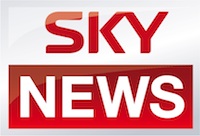"I come here tonight as a sister."
I woke up this morning and watched last night's highlights from Denver, especially the introduction by Michelle Obama's brother, Craig Robinson, and of course the keynote speech by Michelle herself.
Robinson spoke of "the experiences we shared growing up," which I'm sure he meant in the generic "any American can relate to" sense that pervaded almost the entirety of his sister's remarks. But it brought to my mind what has always struck me about the race issue in this year's campaign - that Barack Obama's experiences differ dramatically from those of most American blacks, including his wife Michelle and her brother Craig.
I recall discussing, as far back as last summer, the disposition of black Americans towards Obama, with a colleague from that community. At the time, the majority sided with Hillary Clinton - it was only after Obama began to win that the black community rallied behind him en masse. But, in the early stages, there was a feeling that Obama was "not a brotha", as my colleague put it, to make the point.
In other words, "the experiences [Craig and Michelle] shared growing up" didn't at all resemble those of a childhood in Hawaii and Indonesia, that of Barack Obama. I recall browsing a copy of Ebony magazine at Heathrow Airport over a year ago, to kill time between flights, when seeing a picture of Barack and Michelle on the cover. In it, she related her reluctance to go out with him at first, saying something like "he was from Hawaii, I thought he'd be weird."
But despite a joke about her husband's "funny name", practically nothing calling attention to anything different or unique could be detected in Michelle Obama's remarks.
The message was clear - the Democrats know that her past remark about being proud of her country for the first time is a liability. Thus, last night's speech portrayed Michelle Obama as a fervently patriotic but colorless, generic, middle-class mom from working-class roots that her husband's strategists figure most Democrats a) are, or b) aspire to be.
Even a hat-tip to Hillary Clinton, "who put those 18 million cracks in that glass ceiling, so that our daughters and our sons can dream a little bigger and aim a little higher," was historically revised out of its feminist context, so that no group could possibly be singled out or left out.
I'm not a big fan of sectarian politics, which play a big role in Democrat Party politics, so this approach was pleasantly surprising to see, even if it was not at all genuine. I'll be interested to see whether or not the other major speeches take a generic route like Michelle Obama did, or whether the likes of Joe Biden and other whites can play through their politically-correct deck of cards.
A couple final notes: the scene at the end with Michelle and her 2 kids hugging and saying hi to their dad via videoconference were very endearing, and will play on the heartstrings of even the staunchest Republican.
And the guitarist in the house band had a very cool tone - clean and jazzy - I was digging him on both "Signed, Sealed, Delivered" and "Isn't She Lovely", especially the former.
I'm not expecting much in that department when my party convenes next week. We'll be lucky enough if people don't clap on 1 and 3.
Robinson spoke of "the experiences we shared growing up," which I'm sure he meant in the generic "any American can relate to" sense that pervaded almost the entirety of his sister's remarks. But it brought to my mind what has always struck me about the race issue in this year's campaign - that Barack Obama's experiences differ dramatically from those of most American blacks, including his wife Michelle and her brother Craig.
I recall discussing, as far back as last summer, the disposition of black Americans towards Obama, with a colleague from that community. At the time, the majority sided with Hillary Clinton - it was only after Obama began to win that the black community rallied behind him en masse. But, in the early stages, there was a feeling that Obama was "not a brotha", as my colleague put it, to make the point.
In other words, "the experiences [Craig and Michelle] shared growing up" didn't at all resemble those of a childhood in Hawaii and Indonesia, that of Barack Obama. I recall browsing a copy of Ebony magazine at Heathrow Airport over a year ago, to kill time between flights, when seeing a picture of Barack and Michelle on the cover. In it, she related her reluctance to go out with him at first, saying something like "he was from Hawaii, I thought he'd be weird."
But despite a joke about her husband's "funny name", practically nothing calling attention to anything different or unique could be detected in Michelle Obama's remarks.
"His family was so much like mine. He was raised by grandparents who were working class folks just like my parents - and by a single mother who struggled to pay the bills, just like we did. And like my family, they scrimped and saved so that he could have opportunities that they never had for themselves. And Barack and I were raised with so many of the same values..."This was generic, no frills, everybody-feel-good 101. Yes, Michelle Obama "[came] here tonight as a sister," without a care as to whether or not her husband was perceived as a "brotha". She described her husband as "the son of a single mom from hawaii" no mention of his father being an immigrant (let alone from Africa), no mention of race, of ethnicity, of religion (I couldn't help but notice she left out the words "under God" after saying the phrase "one nation" at one point).
The message was clear - the Democrats know that her past remark about being proud of her country for the first time is a liability. Thus, last night's speech portrayed Michelle Obama as a fervently patriotic but colorless, generic, middle-class mom from working-class roots that her husband's strategists figure most Democrats a) are, or b) aspire to be.
Even a hat-tip to Hillary Clinton, "who put those 18 million cracks in that glass ceiling, so that our daughters and our sons can dream a little bigger and aim a little higher," was historically revised out of its feminist context, so that no group could possibly be singled out or left out.
I'm not a big fan of sectarian politics, which play a big role in Democrat Party politics, so this approach was pleasantly surprising to see, even if it was not at all genuine. I'll be interested to see whether or not the other major speeches take a generic route like Michelle Obama did, or whether the likes of Joe Biden and other whites can play through their politically-correct deck of cards.
A couple final notes: the scene at the end with Michelle and her 2 kids hugging and saying hi to their dad via videoconference were very endearing, and will play on the heartstrings of even the staunchest Republican.
And the guitarist in the house band had a very cool tone - clean and jazzy - I was digging him on both "Signed, Sealed, Delivered" and "Isn't She Lovely", especially the former.
I'm not expecting much in that department when my party convenes next week. We'll be lucky enough if people don't clap on 1 and 3.
















